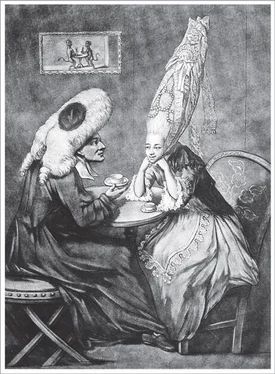Bill Bryson - At Home
Здесь есть возможность читать онлайн «Bill Bryson - At Home» весь текст электронной книги совершенно бесплатно (целиком полную версию без сокращений). В некоторых случаях можно слушать аудио, скачать через торрент в формате fb2 и присутствует краткое содержание. Жанр: Старинная литература, на английском языке. Описание произведения, (предисловие) а так же отзывы посетителей доступны на портале библиотеки ЛибКат.
- Название:At Home
- Автор:
- Жанр:
- Год:неизвестен
- ISBN:нет данных
- Рейтинг книги:4 / 5. Голосов: 1
-
Избранное:Добавить в избранное
- Отзывы:
-
Ваша оценка:
- 80
- 1
- 2
- 3
- 4
- 5
At Home: краткое содержание, описание и аннотация
Предлагаем к чтению аннотацию, описание, краткое содержание или предисловие (зависит от того, что написал сам автор книги «At Home»). Если вы не нашли необходимую информацию о книге — напишите в комментариях, мы постараемся отыскать её.
At Home — читать онлайн бесплатно полную книгу (весь текст) целиком
Ниже представлен текст книги, разбитый по страницам. Система сохранения места последней прочитанной страницы, позволяет с удобством читать онлайн бесплатно книгу «At Home», без необходимости каждый раз заново искать на чём Вы остановились. Поставьте закладку, и сможете в любой момент перейти на страницу, на которой закончили чтение.
Интервал:
Закладка:
Washing for the sake merely of being clean and smelling nice was remarkably slow in coming, however. When John Wesley, the founder of Methodism, coined the phrase “Cleanliness is next to Godliness,” in a sermon in 1778, he meant clean clothes, not a clean body. With respect to bodily cleanliness, he recommended only “frequent shaving and foot washing.” When the young Karl Marx went off to college in the 1830s, his fretting mother gave him strict instructions regarding hygiene and particularly enjoined him to have “a weekly scrub with sponge and soap.” By the time of the Great Exhibition, things were clearly turning. The exhibition itself featured more than seven hundred soaps and perfumes, which must have reflected some level of demand, and two years later cleanliness received another timely boost when the government finally abolished the long-standing soap tax. Even so, as late as 1861 an English doctor could write a book called Baths and How to Take Them .
What really got the Victorians to turn to bathing, however, was the realization that it could be gloriously punishing. The Victorians had a kind of instinct for self-torment, and water became a perfect way to make that manifest. Many diaries record how people had to break the ice in their washbasins in order to ablute in the morning, and the Reverend Francis Kilvert noted with pleasure how jagged ice clung to the side of his bath and pricked his skin as he merrily bathed on Christmas morning 1870. Showers, too, had great scope for punishment, and were often designed to be as powerful as possible. One early type of shower was so ferocious that users had to don protective headgear before stepping in lest they be beaten senseless by their own plumbing.
II
Perhaps no other word in English has undergone more transformations in its lifetime than toilet . Originally, in about 1540, it was a kind of cloth, a diminutive form of toile, a word still used to describe a type of linen. Then it became a cloth for use on dressing tables. Then it became the items on the dressing table (whence toiletries ). Then it became the dressing table itself, then the act of dressing, then the act of receiving visitors while dressing, then the dressing room itself, then any kind of private room near a bedroom, then a room used lavatorially, and finally the lavatory itself. Which explains why toilet water in English can describe something you would gladly daub on your face or, simultaneously and more basically, water in a toilet.
Garderobe , a word now extinct, went through a similar but slightly more compacted transformation. A combination of guard and robe , it first signified a storeroom, then any private room, then (briefly) a bedchamber, and finally a privy. However, the last thing privies often were was private. The Romans were particularly attached to the combining of evacuation and conversation. Their public latrines generally had twenty seats or more in intimate proximity, and people used them as unselfconsciously as modern people ride a bus. (To answer an inevitable question, a channel of water ran across the floor in front of each row of seats; users dipped sponges attached to sticks into the water for purposes of wiping.) Being comfortable with strangers lasted far into modern times. Hampton Court contained a “Great House of Ease” that could accommodate fourteen users at once. Charles II always took two attendants with him when he went into the lavatory. Mount Vernon, George Washington’s home, has a lovingly preserved privy with two seats side by side.
The English for a long time were particularly noted for their unconcern about lavatorial privacy. Giacomo Casanova, the Italian adventurer, remarked on a visit to London how frequently he saw someone “ease his sluices” in full public view along roadsides or against buildings. Pepys notes in his diary how his wife squatted in the road “to do her business.”
Water closet dates from 1755 and originally signified the place where royal enemas were administered. The French from 1770 called an indoor toilet un lieu à l’anglaise , or “an English place,” which would seem a potential explanation for where the English word loo comes from. At Monticello, Thomas Jefferson installed three indoor privies—probably the first in America—which incorporated air vents to take the odor away. By Jeffersonian standards (or actually any standards), they weren’t technologically advanced: the waste simply fell into a collecting pot, which was emptied by slaves.
The Reverend Henry Moule, a vicar in Dorset, invented the earth closet in the mid-nineteenth century. The earth closet was essentially a commode that incorporated a storage tank filled with dry earth that, with the pull of a handle, released a measured dose of soil into the receptacle, masking the smell and sight of one’s leavings. Earth closets were much appreciated for a time, particularly in rural areas, but were swiftly overtaken by flushing toilets, which didn’t just cover one’s waste, but whisked it away in a torrent of water. Or at least they did when they worked well, which wasn’t always, or even often, in the early days.
Most people continued to use chamber pots, which they kept in a cupboard in their bedrooms or closet, and which were known (for entirely obscure reasons) as jordans. Foreign visitors were frequently appalled by the English habit of keeping chamber pots in cupboards or sideboards in the dining room, which the men would pull out and use as soon as the women had withdrawn. Some rooms came supplied with a “necessary chair” in the corner as well. A French visitor to Philadelphia, Moreau de Saint-Méry, noted with astonishment how one man removed the flowers from a vase and peed in it. Another French visitor at about the same time reported asking for a chamber pot for his bedroom and being told just to go out the window like everyone else. When he insisted on being provided with some thing in which to do his business, his bemused host brought him a kettle, but firmly reminded him that she would need it back in the morning in time for breakfast.
The most notable feature about anecdotes involving toilet practices is that they always—really, always—involve people from one country being appalled by the habits of those from another. There were as many complaints about the lavatorial customs of the French as the French made of others. One that had been around for centuries was that in France there was “much pissing in chimnies.” The French were also commonly accused of relieving themselves on staircases, “a practice which was still to be found at Versailles in the eighteenth century,” writes Mark Girouard in Life in the French Country House . It was the boast of Versailles that it had one hundred bathrooms and three hundred commodes, but they were oddly underused, and in 1715 an edict reassured residents and visitors that henceforth the corridors would be cleared of feces weekly.
Most sewage went into cesspits, but these were commonly neglected, and the contents often seeped into neighboring water supplies. In the worst cases they overflowed. Samuel Pepys recorded one such occasion in his diary: “Going down into my cellar … I put my foot into a great heap of turds … by which I found that Mr Turner’s house of office is full and comes into my cellar, which doth trouble me.”
The people who cleaned cesspits were known as nightsoil men, and if there has ever been a less enviable way to make a living I believe it has yet to be described. They worked in teams of three or four. One man—the most junior, we may assume—was lowered into the pit itself to scoop waste into buckets. A second stood by the pit to raise and lower the buckets, and the third and fourth carried the buckets to a waiting cart. Nightsoil work was dangerous as well as disagreeable. Workers ran the risk of asphyxiation and even of explosions, since they worked by the light of a lantern in powerfully gaseous environments. The Gentleman’s Magazine in 1753 related the case of one nightsoil man who went into a privy vault in a London tavern and was overcome almost at once by the foul air. “He call’d out for help, and immediately fell down on his face,” one witness reported. A colleague who rushed to the man’s aid was similarly overcome. Two more men went to the vault but could not get in because of the foul air, though they did manage to open the door a little, releasing the worst of the gases. By the time rescuers were able to haul the two men out, one was dead and the other was beyond help.
Читать дальшеИнтервал:
Закладка:
Похожие книги на «At Home»
Представляем Вашему вниманию похожие книги на «At Home» списком для выбора. Мы отобрали схожую по названию и смыслу литературу в надежде предоставить читателям больше вариантов отыскать новые, интересные, ещё непрочитанные произведения.
Обсуждение, отзывы о книге «At Home» и просто собственные мнения читателей. Оставьте ваши комментарии, напишите, что Вы думаете о произведении, его смысле или главных героях. Укажите что конкретно понравилось, а что нет, и почему Вы так считаете.












